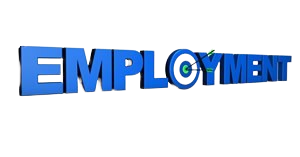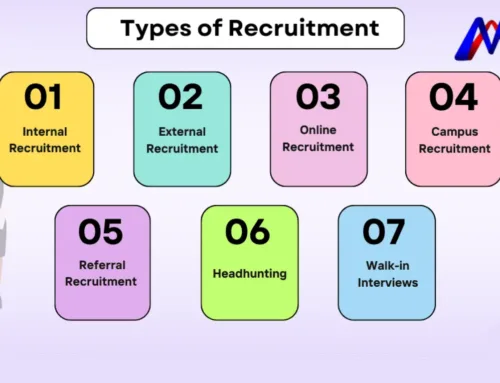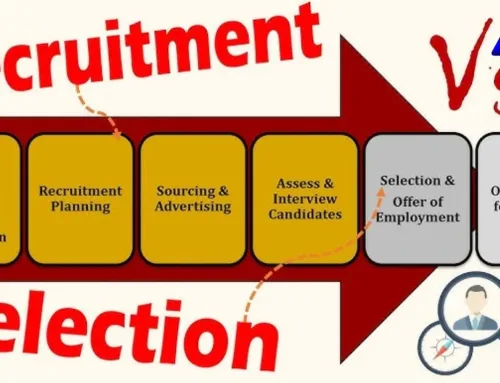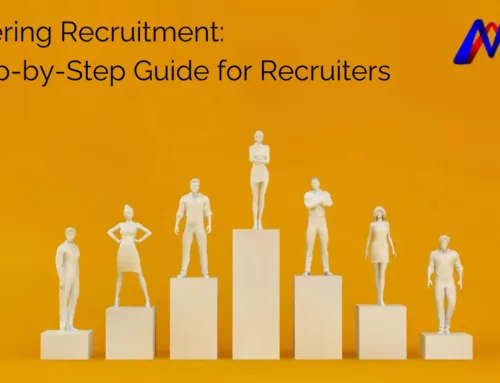Employment agencies can help you locate temporary, permanent, and internship jobs quickly and effectively. With knowledge of what companies require and access to positions you might never otherwise find, employment agencies provide invaluable assistance when searching for work.
These resources also assist in navigating the bureaucracy involved with finding jobs and filing unemployment claims, so read on to discover more of these invaluable tools.
Industry Insights and Trends
Industry insights provide in-depth knowledge and understanding of specific business sectors or fields. Such insight is indispensable when making decisions, developing strategies, and remaining competitive. Resources dedicated to industry insights may cover trends, opportunities, challenges, best practices, emerging developments, and similar topics within an industry.
Employment agencies facilitate the hiring process for jo`b seekers and potential employers by streamlining search and interview processes, saving both parties time and money. They may also offer helpful tips about job hunting and interviewing.
These companies can operate as public employment services at the federal, state, or local levels or as privately owned businesses. They typically hire employees on temporary contracts (temporary workers who can be hired permanently later), contract-based employment arrangements, or temp-to-hire. Each employee is kept on file with their skill set and work history, offering positions from entry-level administrative positions to skilled professional support roles like accounting or legal support.
In some countries, these agencies also function as job centers and offer training to the unemployed. However, economic crises, technological advancements, the decline in certain industries, and issues related to unemployment have necessitated a reevaluation of these agencies’ roles and responsibilities.
Employment agencies also play a valuable role in mediating between employer and employee when issues arise, such as wage disputes, discrimination, or sexual harassment. State employment agency departments oversee and regulate these functions to ensure efficient functioning.
Employment agencies wishing to operate legally in New York must fulfill several requirements to obtain their license to operate. While these may differ depending on where they’re located, they generally must pay an annual registration fee and provide details of their services, such as providing job seekers with employment or connecting companies with workers.
In addition, staff should receive training in human resource management, which allows them to build and manage a professional workforce that meets client company demands – something which has become increasingly crucial due to economic factors preventing full-time positions from being filled by companies having difficulty filling full-time positions being filled due to difficulty filling full-time positions being filled full-time roles being hard filled from companies having difficulty hiring employees full-time positions due to economic constraints.
Job Search Tips and Advice
Employment agencies may either operate privately and charge job seekers fees for services rendered or act on behalf of hiring companies. No matter their business model, a good recruiter always keeps their client’s best interests at heart and strives to find an exceptional position that fits their skills and qualifications.
Your resume is often the first impression made upon prospective employers when reviewing an application, so make sure it makes an excellent first impression by carefully crafting and targeting it for each prospective employer. Be sure to include relevant experience, education, and any volunteer work – this is your opportunity to make a first impression with an impressive CV or resume!
After reviewing your resume, the person reviewing it may go through a process to narrow down candidates to only those they think should advance further to interviewing and the decision process with hiring managers – one advantage of working with an employment agency services recruiting firm.
Your employment agency should offer various jobs ranging from entry-level to senior-level roles, and you are often privy to opportunities not listed on public job boards. They might also know about positions being filled but not officially posted or could provide information on jobs not yet open for applicants.
As with any business, employment agencies must adhere to state and local laws when conducting their operations. This may involve meeting licensing qualifications, setting service fees, and adhering to relevant regulations. If you’re contemplating opening one yourself, seek legal advice to ensure your agency complies with these laws.
When looking for work, it is essential to be persistent and use as many resources as possible. This includes traditional approaches like job boards and networking with family and friends, using social media, industry publications, and meetups, and reaching out to former colleagues and classmates to ask how they landed their current positions.
Employment Law Updates

Employment laws continue to evolve, making it essential that your employment agency stays up-to-date with current trends and changes. With local, state, and federal legislation increasing workplace regulation requirements.
California’s new law restricting automated tools in hiring requires employers to meet a series of criteria before using such tools, including an audit for bias purposes. Furthermore, minimum wages apply to employee deductions such as board and lodging from paychecks and limits for garnishment withholdings on disposable earnings.
New York expanded employee protections regarding invention assignments and intellectual property ownership, prohibiting employers from using nondisclosure agreements and restricting employees from discussing discriminatory or unfair employment practices under certain conditions.
Like New Hampshire law, Massachusetts now forbids employers from inquiring into, considering, or requiring job applicants to divulge their social media passwords during hiring. Furthermore, civil rights, antidiscrimination, and harassment workplace protections now extend to registered apprenticeship and private-sector on-the-job training participants.
As the 2024 legislative session begins, your employment agency must remain vigilant in keeping abreast of new regulations that could impact its business, such as increased state-level pushes for pay transparency, continuing legislation for paid time off benefits, and new restrictions against retaliation for employee absences.
One change to keep an eye on is the federal law mandating employers provide advanced written notice of layoffs or plant closures to their employees. While not a requirement at present in New York State, it likely will become one in due time; accordingly, it would be prudent for employment agencies to begin preparing now for such requirements by updating notice forms and training materials for clients and employees and reviewing internal policies that cover these topics to stay compliant when the law becomes active.
Employer Branding and Recruitment Strategies
Employer branding strategies are integral components of successful recruitment campaigns. Commonly conducted by Human Resources or Talent Acquisition departments, employer branding entails communicating your company values and culture to prospective job candidates to promote an optimistic image of your organization while increasing employee retention rates and recruiting candidates for open roles.
Employer branding can be effectively promoted with storytelling. Craft a story highlighting your agency’s heritage, mission, values, culture, aspirational goals, and overall culture – then share this narrative through social media posts, website content, or recruitment ads. Furthermore, engage employees by encouraging them to evangelize about your employer brand!
Staffing agencies are crucial in connecting job seekers and companies but are subject to stringent regulatory oversight. This includes licensing requirements such as prominently displaying one in their offices. Furthermore, some firms charge fees to candidates placed by staffing agencies while others do not. Anyone planning on opening an employment agency should consult an attorney about what permits and compliance requirements exist in their state or city before starting one themselves.
Conduct market research to understand your target audience and their perception of your agency to create an employer branding strategy with maximum impact. Doing this will enable you to craft messaging plans that resonate with them while helping guide efforts to reach them. You must also discover which roles they are searching for so you can hire individuals who meet these requirements effectively.
At the core, your employment agency must stand out from other businesses in its industry. What separates you, and why will candidates join your team? For example, some companies provide flexible working hours or an attractive benefits package to entice prospective hires; you might even consider offering referral bonuses to facilitate recruitment efforts more successfully.
How to Use an Employment Agency to Identify In-Depth Skills
Employment agencies provide job hunters and employers with access to work. To operate legally, these businesses must meet specific licensing regulations.
Staffing agencies specialize in temporary staffing solutions to fill an employer’s open positions quickly and cost-effectively, from recruitment through payroll administration.
State employment agencies mediate between the employer and the employer in legal issues about wages, discrimination or sexual harassment, unemployment benefits, and worker protections.
Local Job Market Insights
Before making any significant decisions about career change or professional exploration, conducting an in-depth assessment of the local job market is crucial. Expanding your network and monitoring industry trends can provide insight into what skills are in demand locally and which industries offer opportunities. A great way to gain insight into this local labor market is by analyzing job posting data provided by the Bureau of Labor Statistics; their records detail popular occupations, average salary figures, hiring trends, and any information identifying in-demand skills.
Beyond job postings, online data sources are also useful in discovering which industries are growing or declining in your region. By watching this information, you can determine which career paths you want to pursue and which to steer clear of.
Analysis of job market information can be an invaluable activity for career seekers and employers alike, helping both to understand the current economic landscape and prospects. However, it’s important to remember that raw statistics and data reports can often be misleading; biases, assumptions, and errors could arise that require scrutiny when reading reports containing raw statistics or raw data reports. It is, therefore, vital that one reads closely through all data reports to assess it with an impartial eye.
Many factors can affect job market news, including unemployment rates and unusually high or low demand in certain industries or careers. Such shifts can impact both national and local economies in varying ways.
Whether you are an established business looking for new staff or an incoming graduate looking for employment opportunities, understanding local job market information is critical to making informed decisions about your professional future. In addition to consulting an experienced career counselor, networking effectively and staying abreast of industry trends are also beneficial in providing an in-depth picture of local job markets, allowing more confident decisions when making career choices.
The job market is ever-evolving; depending on season or economic trends, it can be hard to anticipate where new job openings may appear. Therefore, it’s wiser to focus on long-term trends rather than reacting quickly to monthly fluctuations in employment numbers.
In-Demand Skills
Job hunters need to understand which skills are in demand to tailor their resumes and increase the odds of employment. According to Forbes’ 2024 employer demand list, employers want candidates with technical knowledge as well as adaptable abilities that can adapt to changing environments. Furthermore, many jobs now demand soft skills like teamwork and empathy as this will allow workers to collaborate more effectively within a company and positively contribute towards its goals.
According to research from LinkedIn, Upwork, and Adobe, computer programming, data analysis, and programming skills are in high demand. Other top skills include marketing, customer service, business development, and project management; however, market fluctuations haven’t had the same effect on these skill clusters, with some seeing decreased interest while others experiencing surges.
Hiring managers across industries want employees who can keep up with technology trends and use data analytics to inform their decision-making process. Furthermore, the ability to quickly acquire new skills is highly desired, especially among professionals working in technical fields who must constantly adapt their tools and processes as their industry changes.
As our world digitalizes, employers increasingly seek candidates who can provide personalized customer service from remote locations. Therefore, emotional intelligence (EQ) has become more essential in leadership and customer service roles; understanding one’s emotions and those of colleagues and customers is essential to building trust in a digital workplace.
Project management skills are increasingly in demand across industries. Successfully balancing projects and prioritizing tasks is key for collaborative efforts across sales or IT positions – thus making project management skills an asset in any professional’s resume. Collaboration on teams is another desirable soft skill that has become even more necessary as remote work becomes common; communicating well, collaborating productively in virtual environments, and sharing knowledge effectively among teammates are invaluable to any organization.
Also Read:- How Recruitment Services Can Help Your Business
Industry Job Seekers
Even with an overall decrease in new job postings, labor markets continue to offer advantages to workers. There are more jobs than people looking for work. Although this ratio varies based on the industry, finance, education, health services, professional business services, and leisure and hospitality workers often have greater leverage. At the same time, manufacturers and construction can face greater difficulties finding employment.
There is less competition among job applicants, so applicants have greater bargaining power when applying for employment. Since employers must quickly meet production needs and operational demands, they’re more willing to offer higher pay and flexible schedules with inflation-linked benefits and unlimited paid time off. Furthermore, candidates increasingly seek organizations with strong ethical standards and dedication to serving communities effectively.
Job-seekers may be taking advantage of a competitive job market and increased remote work options, but they’re also feeling the strains of an altered employment environment. According to a report by ResumeBuilder, 45% of respondents reported finding it more challenging than before the pandemic to navigate the job search – due mainly to inconsistent hiring procedures, such as being stood up for interviews or not receiving responses after applying for roles.
Companies should prioritize internal mobility to retain top talent, particularly as more workers remain disengaged from their current organizations. Over half of job-seekers report looking for positions within their current company – this represents an invaluable opportunity for employers to provide roles that align with employee skillsets and career aspirations.
Job-seekers place greater importance on their careers, with two-thirds of those surveyed ranking competitive compensation as the primary criterion when selecting employers. To attract and retain top talent, businesses should regularly benchmark salaries against industry averages to ensure they remain attractive to candidates. Employers can support job-seekers by creating an efficient recruitment process that regularly communicates with candidates and provides constructive feedback. Employers also offer job seekers support by creating an easily navigable recruitment portal where candidates feel appreciated.
Industry Employers
Industry employers include organizations that produce or deliver goods and services. This may range from equipment manufacturers, car dealerships, grocery stores, and food and beverage producers to software developers and advertising agencies.
This category encompasses companies that lease office and residential spaces and those that manage real estate, with common job titles being counter and rental clerk, property manager, real estate agent, community association manager, and escrow officer.
Employers in all industries reported positive hiring plans, with leisure and hospitality employers leading the charge, followed by professional and business services firms and professional and business services providers. However, optimism was balanced by talent shortages, particularly within architecture, engineering, and construction (AEC). AEC Unites was launched this month by industry to increase intentional opportunities for Black professionals and contractors in AEC sector projects, and it counts Turner Hensel Phelps WSP USA Stantec Moody Nolan among its supporters.
Frequently Asked Questions
What is the work of recruitment agencies?
Recruitment agencies help organizations fill open positions with qualified candidates.
They act as a bridge between employers and employees, and their work includes:
Identifying needs: Understanding and analyzing requirements, and preparing for the job description
Finding candidates: Sourcing new opportunities, searching for candidates, and reaching out to them on platforms like Handshake
Screening candidates: Reviewing job experiences, providing advice on CVs, and sometimes helping candidates prepare for interviews
Selecting candidates: Presenting top talent to hiring managers
Hiring: Identifying, interviewing, and selecting candidates
Onboarding: Providing effective onboarding
How do I get candidates for recruitment agency?
Here are some ways to get candidates for a recruitment agency:
Employee referrals
Ask current employees for referrals, as they may know people with similar skills and interests. These referrals can be a good way to find candidates who are likely to fit well with the company culture.
Job boards
Post open positions on job boards to find candidates who are actively looking for a new job.
Career fairs
Job fairs are a good way for employers to meet potential candidates in person.
Social media
Use social media and other networking platforms to identify potential candidates.
Inbound recruiting
Create a positive brand image through content marketing to steer candidates directly to the agency through social media.
Candidate screening
Use the candidate screening process to narrow the talent pipeline and find the best candidates to move forward with the hiring process.
Job advertisements
Post job advertisements on job boards.
Other ways to source candidates include: Recruitment database, Recruiter network.
What is the meaning of recruitment agency in business?
A business that is paid to find suitable workers for other companies and organizations: a specialist/online/IT recruitment agency.
Recruitment agencies can help with the following:
Sourcing new opportunities
Speaking to potential candidates
Providing advice on CVs
Helping candidates prepare for interviews
Sourcing and vetting individuals
Presenting top talent to hiring managers
1
How do I ask a recruitment agency for a job?
Call and ask who the most appropriate Recruiter to talk to is regarding the type of job (or specific job) you’re looking for. Introduce yourself, apply, then FOLLOW UP.
When asking a recruitment agency for a job, you can:
Prepare: Research the company and have notes ready. Prepare 2–3 questions to ask the recruiter.
Be clear: Be specific about the job you’re interested in and why you’re a good fit.
Introduce yourself: Explain who you are, why you’re contacting them, and how you found their information. If you have a referral, include that in the body of your message.
Highlight your skills: Highlight your relevant skills and experiences, and attach your updated resume.
Express interest: End with a question or statement that lets them know you’re interested in the job.
Ask for a call: Ask for a call to discuss your qualifications further.
You can also email a recruiter:
Be direct in the subject line
Greet them by name
Briefly review your experience
Describe your next career goals
Ask to collaborate
Wait for a reply
Can I ask a recruiter to find me a job?
You cannot hire a recruiter to find you a job. Recruiters and headhunters are hired and paid by the hiring company to fill specific positions. They don’t work for individual job seekers.
Recruiters are hired by companies to fill specific positions, not for individual job seekers.
How do I approach a consultancy job?
Here are some tips for approaching a consultancy job:
Prepare
Choose a field of expertise
Develop your skills
Create a resume or portfolio
Earn certifications
Make new connections
Search for job openings
Prepare for the interview





